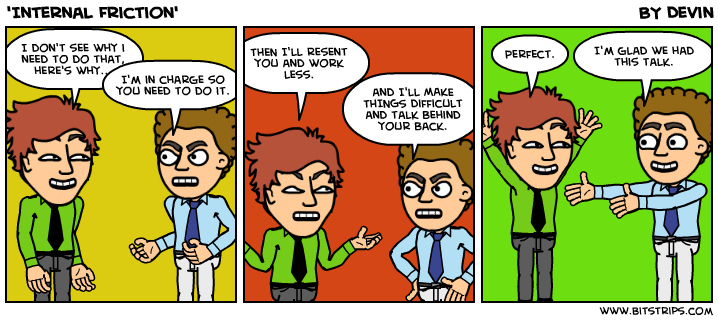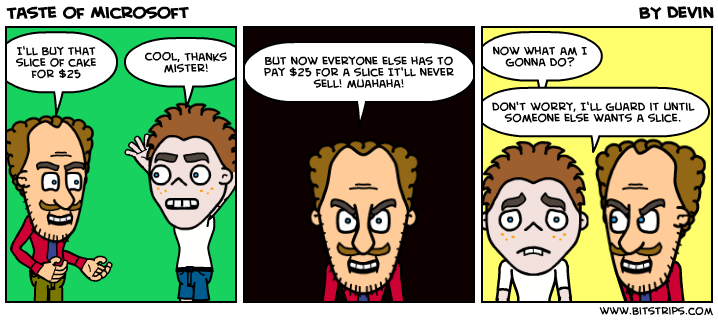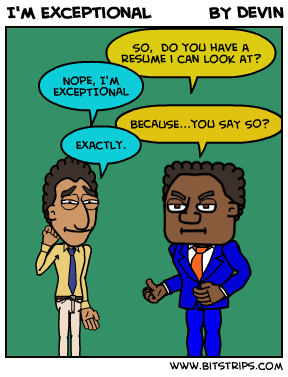
The problem with bosses is they often know what needs to be done but aren’t always so great at communicating why it needs to be done. Some people just rub you the wrong way in how they talk to you, how they do or do not help you understand what needs to be done. Many people just don’t care and want to do the bare minimm. I run into this pretty often and the nature of my work means I have about a dozen bosses (and a dozen more co-workers) all with different personalities, particularities, preferences, management styles, and leadership styles. What a fun challenge!
The first thing I realize is these people have been where I have, do what I do, and have usually already been in the same position. There’s many a time where you will doubt a manager’s understanding of what needs to be done. A lot of times you’ll become frustrated by how your co-workers interact with you. And, unfortunately, some people do get promoted and do end up in places they shouldn’t be. This creates a tough situation that often leads to friction.
I try to constantly and consistently communicate with the people I work with to provide feedback. In other words, “managing upwords” is a great skill to develop. For example:
- I let my boss know my opinion on a task or approach, why I disagree with it and offer an alternative.
- I tell him or her what I think my priorities are and make sure we agree. Often we don’t.
- I make sure that they know what I prefer or how I work and make sure I understand their style, too. Asking for expectations is a good way to start this conversation.
- I immediately confront someone who I have an issue with or who clearly has an issue with me.
Typically this can resolve any friction you have with someone. But, too often you’ll see people ignore the issue, talk behind a person’s back or even give up and maintain contempt for a person. I admit, I’ve done this a number of times.
My best solution to offer is to stop and talk with the person. Walk across the hall, pick up the phone, or simply recognize the opportunity to tell the person right then and there (“John, the way you just asked me to do that? That was borderline rude. You didn’t even request it of me–you commanded me.”).
If you struggle talking directly to a person, perhaps a mentor is the best medium to communicate with them. Talk with someone you trust (preferably in a position above you) and ask them how to navigate the political situation, what the best approach would be, and if they could perhaps speak with you or speak on your behalf.
Have you ever been rubbed the wrong way by a co-worker or boss (no, not that way) and salvaged the relationship? Share your story in the comments.




